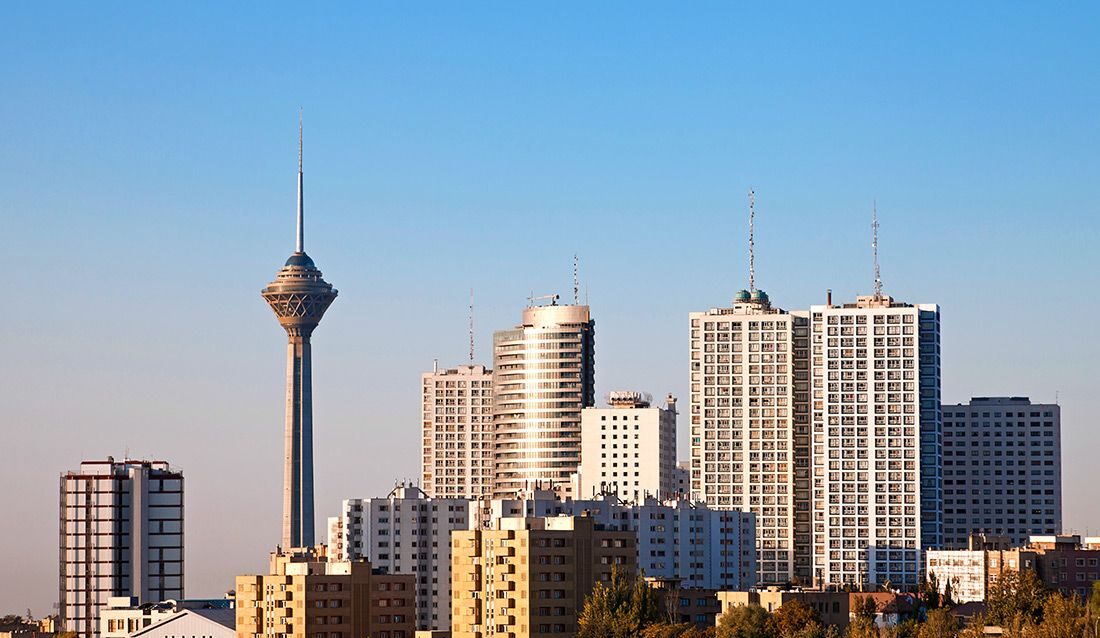The real estate market in Iran is diverse, with significant demand for residential and commercial properties. The nation provides plenty of prospects for real estate experts due to its expanding urban areas and growing population. Becoming a real estate agent in Iran requires fulfilling certain standards, obtaining the required training, and comprehending the subtleties of the local market for individuals who are interested in the profession. The procedures and factors to be taken into account in order to become a successful Iranian real estate agent are described in this article.
Understanding the Real Estate Market in Iran

Before discussing the requirements and steps to become a real estate agent in Iran, it is important to understand the local real estate market. Iran has a large population and is experiencing a growing urbanization trend. Tehran, Isfahan, Mashhad, and Shiraz are major cities where property transactions are common. The real estate sector in Iran has faced various challenges, including inflation, government regulations, and economic fluctuations, but it remains a vital part of the economy.
The market features both high-demand residential properties and large-scale commercial developments. Many individuals seek real estate as an investment, so agents specializing in buying and selling properties are in high demand. Agents also need to understand the unique challenges of property laws, particularly those related to land ownership and property transactions in Iran.
Required Qualifications to Become a Real Estate Agent in Iran
In Iran, real estate agents are required to meet certain qualifications and follow specific legal processes to practice legally. These requirements ensure that agents are well-prepared to handle property transactions responsibly and professionally.
Basic Educational Requirements
There is no specific mandatory educational requirement for becoming a real estate agent in Iran. However, many successful agents hold business, law, or economics degrees. A strong educational foundation in these areas can be helpful, especially when dealing with complex financial and legal aspects of real estate transactions.
While a formal degree is not required, agents knowledgeable about business operations, finance, and law will have an advantage, as these skills can aid in negotiations, marketing, and managing property contracts.
Real Estate Agent Training and Certification
In Iran, real estate agents must complete training courses and obtain certification to practice legally. The Iranian Real Estate Agents Union (IREAU) oversees the certification process, which regulates the real estate industry and establishes standards for agents.
The training courses offered by IREAU are designed to help aspiring agents understand the fundamentals of the real estate business in Iran. The courses typically cover topics such as:
- Real estate laws and regulations in Iran
- Property valuation and pricing
- Contract negotiation and documentation
- Ethical business practices and professional standards
- Marketing and advertising strategies for real estate
After completing the required training, candidates must pass an exam administered by IREAU. This exam evaluates the candidate’s industry knowledge, legal regulations, and professional conduct. Upon passing the exam, candidates receive their official certification, allowing them to practice as licensed real estate agents in Iran.
Obtaining a Real Estate License
Once an individual has completed the necessary training and passed the certification exam, they must apply for a real estate license through IREAU. The licensing process requires submitting relevant documents, including proof of training completion and identification documents. After approval, agents are issued a license that allows them to legally represent clients in property transactions.
In addition to obtaining a license, agents must comply with local tax laws, register their business, and, in some cases, maintain professional liability insurance. These steps ensure that agents operate responsibly and legally.
Skills Required to Become a Successful Real Estate Agent in Iran
To succeed as a real estate agent in Iran, it is not enough to simply meet the legal and certification requirements. To properly service clients and negotiate the intricacies of the Iranian real estate market, agents need to have a number of fundamental abilities.
Strong Communication Skills
Real estate agents must have excellent communication skills to negotiate deals, explain contract terms, and advise clients. Clearly articulating the pros and cons of a property, communicating with potential buyers or sellers, and resolving conflicts are crucial in this profession. Communication is not limited to face-to-face interactions; effective digital communication through emails, phone calls, and social media is vital for reaching a broad audience.
Since Iran has a diverse population and a growing number of international buyers, being fluent in multiple languages, particularly Persian and English, is advantageous. Many real estate professionals in Iran deal with expatriates, international investors, or foreign companies, so the ability to speak English can significantly broaden an agent’s clientele.
In-depth knowledge of the Local Market
A successful real estate agent in Iran needs to have a deep understanding of local market conditions. This includes knowing the demand for different types of properties, trends in property pricing, and regional preferences. For instance, properties in Tehran are typically more expensive than in smaller cities, and agents must be able to guide clients in making well-informed decisions based on these market dynamics.
Knowledge of zoning laws, property regulations, and land use policies in different regions of Iran is also essential. This ensures that real estate agents can advise clients on legal matters and prevent potential legal issues related to property transactions.
Negotiation Skills
Negotiation is a key component of a real estate agent’s job. Whether negotiating the price of a property, arranging payment terms, or resolving issues between buyers and sellers, a skilled negotiator can significantly impact the outcome of a transaction.
Agents must be able to identify the needs of both buyers and sellers and act as intermediaries to reach mutually beneficial agreements. Building rapport with clients and understanding their priorities is essential for effective negotiation.
Marketing and Networking Abilities
Marketing plays a critical role in the success of real estate agents. Effective marketing allows agents to reach potential buyers and sellers, showcase properties, and build their reputation. Modern real estate agents must be proficient in traditional and digital marketing techniques.
Digital marketing is especially important in Iran, as the internet and social media platforms used for property searches have increased in recent years. Real estate agents should be familiar with property listing websites, social media platforms like Instagram and Telegram, and other online marketing strategies to attract clients and promote properties.
Networking is also an essential skill for real estate agents. Establishing strong relationships with other professionals, such as lawyers, property developers, mortgage brokers, and fellow agents, can lead to valuable referrals and business opportunities. Networking events, industry conferences, and professional associations can help agents expand their network and stay informed about market trends.
Problem-solving and Attention to Detail
Real estate transactions often involve complex legal and financial aspects, and agents must be detail-oriented to ensure that all paperwork is accurate and complete. Agents should be able to spot potential issues, such as discrepancies in property titles, zoning regulations, or contract terms, and work to resolve them before they become problems.
Problem-solving skills are also crucial when navigating challenges in property deals, such as price negotiations, loan approvals, or unforeseen legal hurdles. An effective real estate agent is proactive in finding solutions and helping clients achieve their property goals.
Working for a Real Estate Agency vs. Independent Practice
In Iran, real estate agents can choose to work for an established agency or practice independently. Both options have pros and cons, depending on the agent’s preferences and career goals.
Working for a Real Estate Agency
Many real estate agents in Iran work for established agencies. These agencies offer agents access to a broad network of clients, marketing resources, and administrative support. New agents, in particular, may benefit from the resources and mentorship a reputable agency provides, which can help them establish a strong client base more quickly.
Working for an agency can provide stability, as agents receive leads from the agency and may have a fixed salary in addition to commission. However, agency-employed agents may have less flexibility regarding commission rates and business practices.
Independent Real Estate Agents
Independent real estate agents enjoy greater autonomy in managing their business. They can set their commission rates, define working hours, and choose which properties to specialize in. However, independent agents must proactively generate business, market their services, and maintain client relationships.
While independent agents have more freedom, they may find it more challenging to build a client base from scratch. Networking, self-promotion, and effective marketing strategies are critical for their success.
Legal and Regulatory Considerations
Real estate agents in Iran must comply with various legal regulations governing property transactions. Some key considerations include:
- Property Ownership Laws: Real estate agents must understand the rules regarding property ownership, especially the limitations for foreign nationals.
- Contract Law: Real estate agents should know the laws governing property contracts, including sales and lease agreements.
- Tax Laws and Registration: Agents must comply with Iran’s tax regulations and may be required to register their business with the government. This ensures they pay the necessary taxes on their earnings and operate legally.
Career Growth and Earning Potential
Real estate agents in Iran typically earn commission-based income, meaning their earnings depend on the value of the properties they sell or lease. High-value transactions in cities like Tehran or Isfahan can lead to substantial commissions. As agents gain experience and build a reputation, their earning potential increases.
Experienced agents specializing in luxury properties or high-demand areas can significantly increase their income. Additionally, agents who develop a strong network and reputation may be able to secure higher-value listings and larger deals.
Conclusion
Becoming a real estate agent in Iran requires formal training, certification, and a solid understanding of the local market and legal regulations. Aspiring agents can build successful careers in the thriving Iranian property market by developing the necessary skills, gaining experience, and staying informed about market trends. Whether working independently or for an agency, real estate agents in Iran have significant opportunities to succeed in a dynamic and competitive industry.










